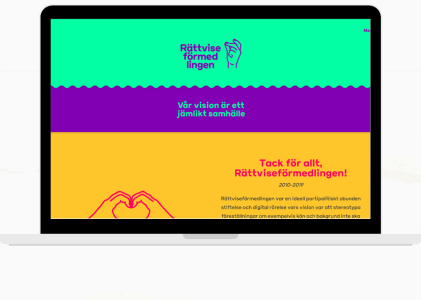
HOW SOCIAL MEDIA CAN BRING SOCIAL CHANGE: THE SWEDISH INITIATIVE EQUALISTERS
A very interesting social media- based initiative devoted to social change arose in Sweden in 2010. Its name was Rättviseförmedligen, Equalisters in English.
It was a non-profit foundation and digital movement aiming to create a more democratic society by fighting the self-perpetuating cycle of underrepresentation of women, non white people, LGBTQ, minorities etc in media and in other fields of society like culture, politics, business etc.
Everything started in Sweden, when DJ Lina Thomsgård was going to a festival in Stockholm and realized that all DJs in the programme were male. She reached out to the organization and asked why there were not one single female DJ in the programme, and their answer was that there were no one to pick. So she posted on Facebook a call asking her network if they knew female DJs to suggest, and in a few minutes she got a long list that she handed out to the festival organizers. This episode created the idea behind Equalisters, a movement that challenged the perception that there are no other suitable representatives or that it is too hard to find other persons that break the norm, with the required competence, thanks to social media and the power they have to reach out to different networks. It clearly showed that ”they don’t exist” usually was a rewrite for ”I don’t know anyone”, and that a change was not only possible but urgently needed. The hashtag #Rättviseförmedlingen in Sweden and #Equalisters abroad began to question underrepresentation issues in media and started a debate on the topic.
Because democracy is all about who is heard and seen, who is represented, and if only one group (the normative, hegemonic one) is represented in society, leaving out minorities or the disadvantaged, there is a democratic problem that precludes participation.
For instance, did you know that 83% of all experts represented in the media are white middle aged men? This does not represent reality in a correct way, and thus when a media outlet was looking for a terrorism expert or economics expert, Equalisters posted a on Facebook, Twitter, LinkedIn and Instagram a call to suggest competent experts in the fields that were not white men, and totally free of charge published the lists of experts that could be used by journalists and news producers. The over 140,000 followers that every day – completely non-profit – contributed with tips, helped finding expertise and talented people that raised awareness on incorrect representation, challenged stereotype ideas on gender, origin and physical abilities & improved visibility for competent people from underrepresented groups – making a change in society.
The participatory method was simple yet innovative, using social media as main channel and its blog as platform:
- Count representation in different contexts
- Highlight and focus on the norm
- Search for others who can broaden the context – compiling a list with alternatives published on Equalisters’ website and social media, with the hashtag #Equalisters and #Rättviseförmedligen, entirely for free.
In 2010 the debate on representation in Sweden was new and counting was pretty unusual, but thanks to Equalisters things have improved and today it’s normal practice that organizations, editors and workplaces actively count and work to broaden their representation. Equalisters got massive media attention in Sweden and abroad and expanded: volunteers replicated the initiative in other countries such as the UK, USA and Italy. Main international media outlets such as the Financial Times have developed a tool for counting women and men in their articles, making Equalisters’ mission reached: with this initiative social change was reached and Equalisters was closed, showing that change do not occur by itself but requires initiative and action- and that social media might be the easiest and fastest way to engage with the audience and create a community of change makers.

